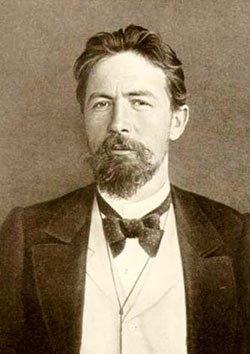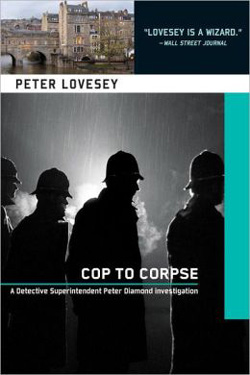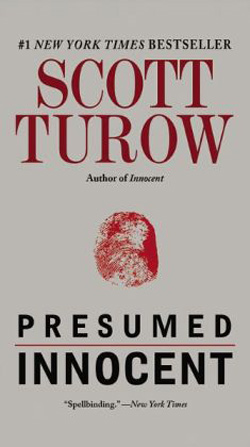 Anton Chekhov is famously said to have decreed that “One must not put a loaded rifle on the stage if no one is thinking of firing it.” This edict has been reported by a number of his contemporaries, and it is found in one of his letters. Admirably, Chekov adhered to his own rule when he created his own plays, stories, and longer fiction. His spare, compelling storytelling revealed a great deal about human psychology.
Anton Chekhov is famously said to have decreed that “One must not put a loaded rifle on the stage if no one is thinking of firing it.” This edict has been reported by a number of his contemporaries, and it is found in one of his letters. Admirably, Chekov adhered to his own rule when he created his own plays, stories, and longer fiction. His spare, compelling storytelling revealed a great deal about human psychology.
I was taught Chekhov's rule early on. I believed it and tried to achieve the economy and psychological punch it promised. When it comes to many kinds of storytelling, I still believe it and still try to follow it. But when I started mysteries, I discovered a flip side to Chekhov's dictum, another rule about revealing human psychology and how it drives a plot: “One must put out plenty of loaded rifles.” Litter the stage with them. Let the audience trip over gun barrels. And hear a few guns go off in the distance.

Louise Penny uses much the same strategy in Bury Your Dead, except that in this story of Quebec City in winter her many potentially lethal instruments are people. They're all civilized, genteel, well read. They're friendly, hospitable, forthcoming, and apparently candid. But one of them is a killer—the idea that every person is a repository of both evil and fear is a central theme. We meet the candidates as the lonely Chief Inspector Gamache encounters them, and along with him, we try to imagine the route through which each of these characters could have slaughtered another of them. But, of course, we're not as clever as Gamache.

All these story lines, all these characters, all these guns. Red herrings are the staple diet of mystery writers, who lay traps, offer up potential pieces to fit the puzzle, because false leads can reveal for the reader not only the possible tracks a story might take (including many long, tempting detours) but also a good deal about his or her own psychology. Assumptions, presumptions, and prejudices—blindnesses.
As a reader, once I find myself way, way off the path to the actual solution, I can usually see what it is about my thinking that allowed me to be led me astray. And being led astray is the fun of it. Who wants to be able to predict how a mystery will play out as soon as the gun is put on stage?
Holly Menino grew up in a small Ohio college town, where her passionate interest in animals showed itself by age three, about ten years before she heard the call to be a writer. A graduate of Smith College, she has worked in both scholarly and popular publishing and in radio. Murder, She Rode is her equestrian mystery debut, featuring former world-class rider and horse trainer Tink Elledge.

I love a well-crafted, plausible red herring. Increases my enjoyment of the mystery.